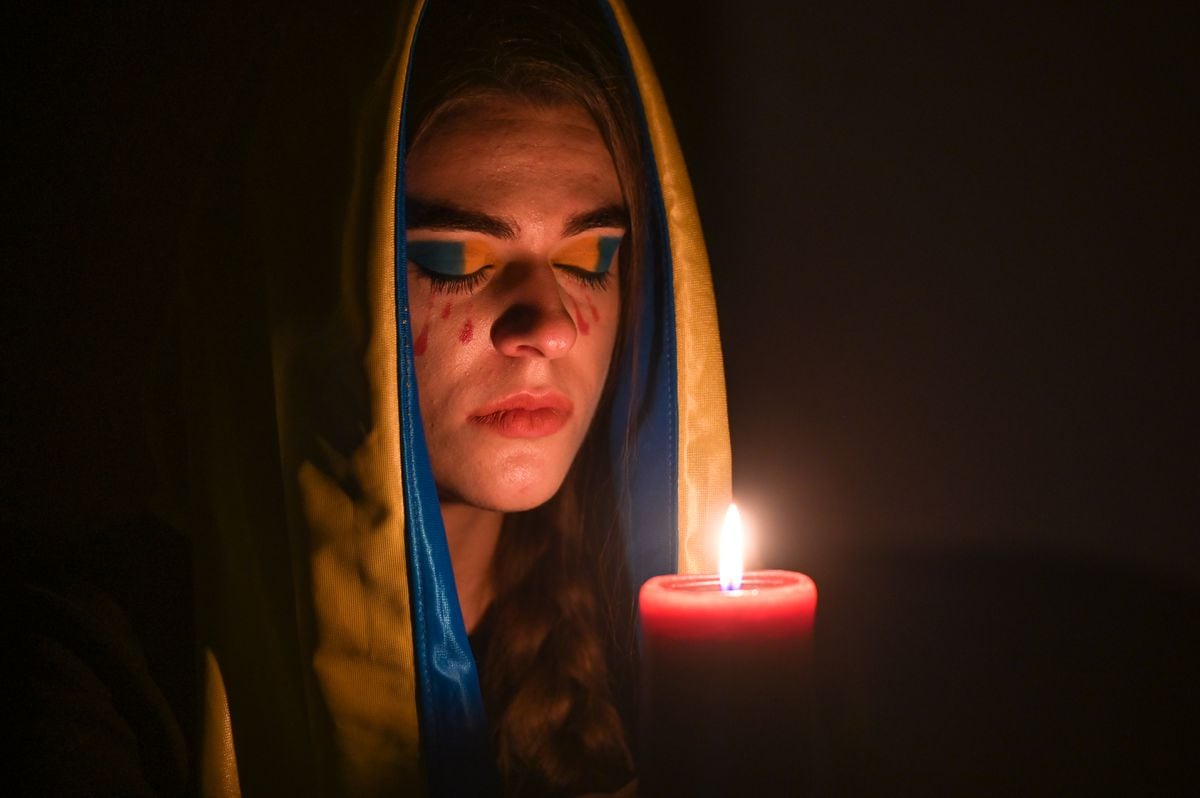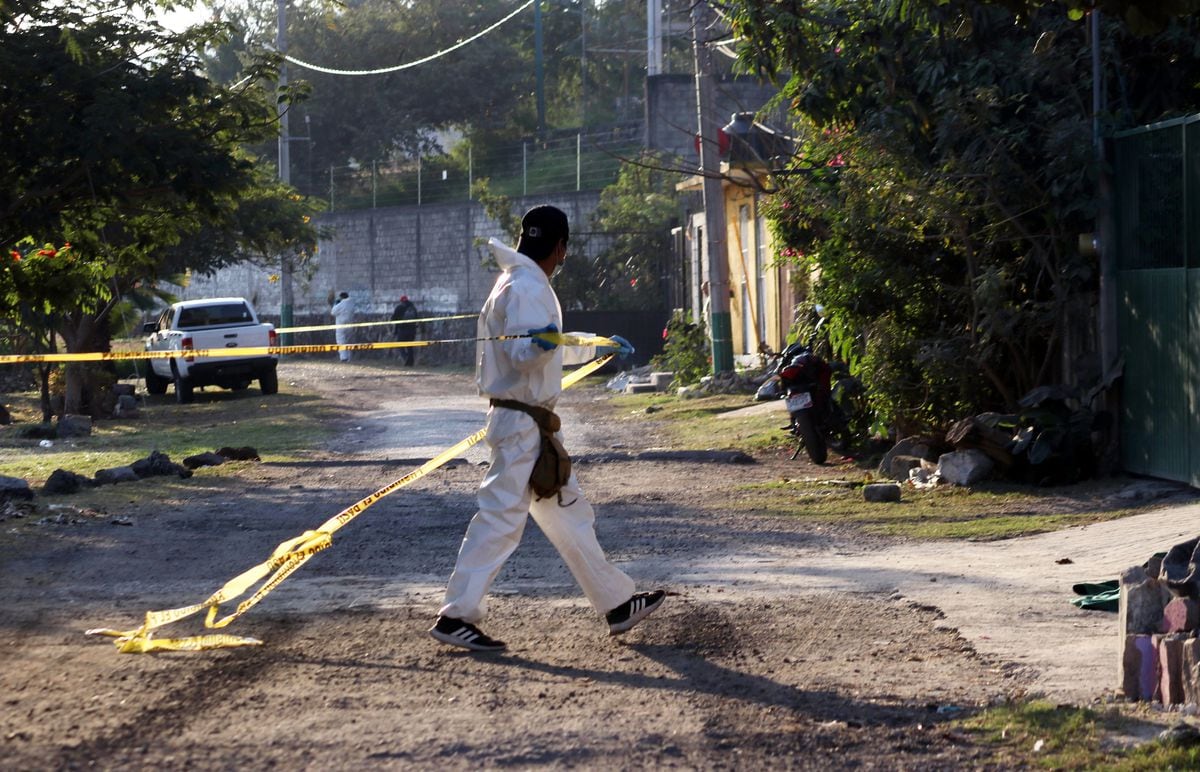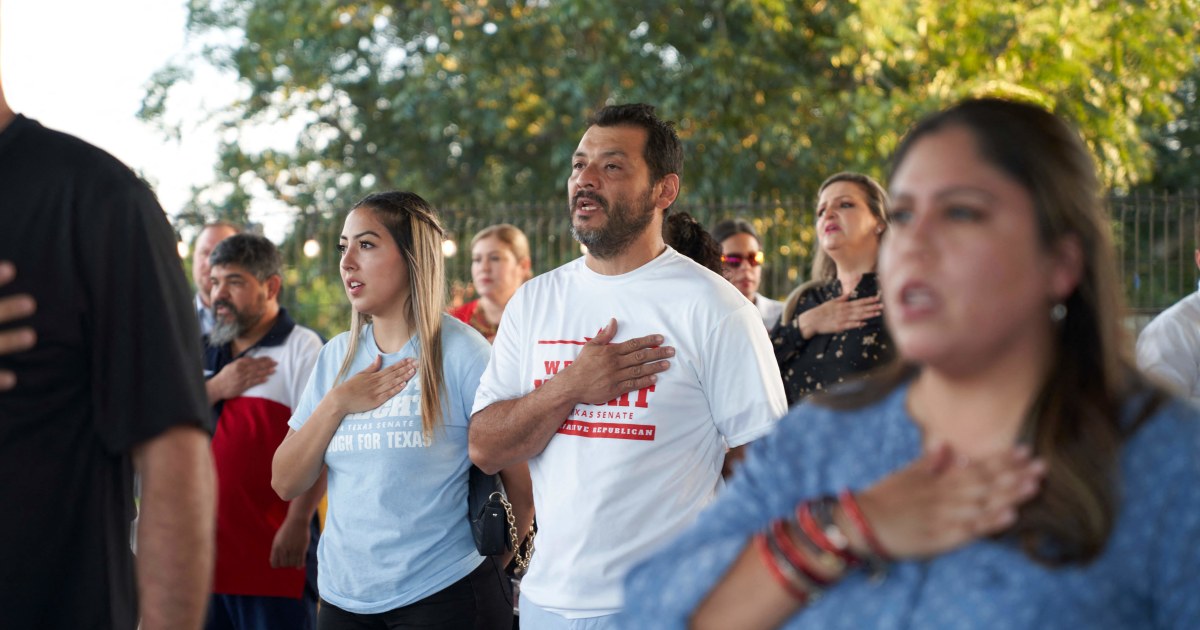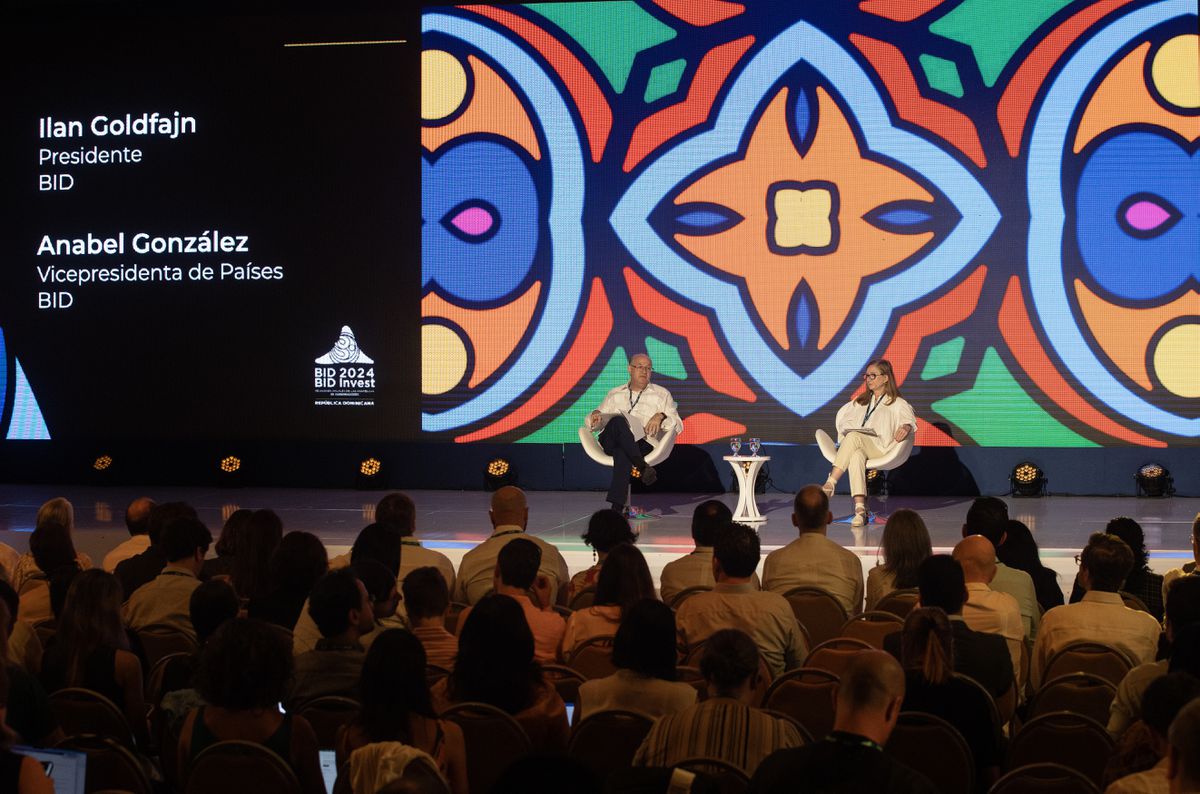One year after Russia decided to invade Ukraine, a former peace commissioner in Colombia believes that Latin America has not fully extended its hand to the Ukrainians.
Sergio Jaramillo is recognized as a key figure in signing the 2016 agreement between the FARC guerrillas and the Government of Colombia—an armed conflict that lasted half a century and seemed never to end.
Since last year he has been looking at another type of project in the middle of a war, a more cultural and international one, which he launched in the first days of February: #AguantaUcrania.
"This is a campaign to raise the voice of Latin America in solidarity with the people of Ukraine," says Jaramillo in a promotional video, in which he explains leading this citizen initiative with friends from Peru, Mexico, Argentina and Uruguay.
A campaign, he adds, “to ensure that Latin America has its own voice in the international debate.
It is a campaign in favor of common sense, to call things by their name: invading the neighbor is what it is, an invasion.
Attacking civilians in their residences, with missiles, is what it is: killing civilians.
Destroying a country's electrical infrastructure in the middle of a brutal winter is what it is: a war crime."
For now, the #AguantaUcrania plan, Jaramillo explains to EL PAÍS, is for the citizens of Latin America to send videos of support for the Ukrainians denouncing what is happening there as an invasion by Russia and not a legitimate war.
"Putin invaded Ukraine as one of the worst war criminals," Lydia Cacho, a Mexican journalist and human rights defender, says in her video.
These videos are intended to “raise awareness,” says Jaramillo, “because it seems to me that Putin is imposing a false narrative about what is happening, reducing Ukrainians as pawns of the West, when what happened is an invasion of a sovereign country. ”.
The fight against the invasion of a great power against a smaller country is something that usually unites the citizens of the region, considers Jaramillo.
“In Latin America there is no more sacred principle than sovereignty, for the different countries, even though we have very different ideological visions”, he considers.
Not only because it is a region that freed itself from Spanish rule at the beginning of the 19th century, and fought against American interventions for a good part of that century and the next, but it has had very few interstate wars.
“As Cuban, we have the sad historical experience of what military interventions mean,” says Leonardo Padura, a Cuban writer, in his support video, summarizing US military interventions in Cuba in 1898 and 1906. “What has happened in Ukraine , is something that from our sensitivity, from our history, from any point of international law, is inadmissible ”, he adds.
Padura's support, as a Cuban, is symbolic, since when the invasion began in 2022, both the Government of Cuba and those of Nicaragua and Venezuela gave their support to Russia.
Among the Nicaraguan and Venezuelan writers who have also joined #AguantaUcrania are Sergio Ramírez, Gioconda Belli and Miguel Szinetar.
"As a Nicaraguan, I know what the invasions and interventions of the United States meant for my country, which is why I cannot agree with the invasion suffered by Ukraine," Belli says in his video.
“An intervention is an intervention, wherever it comes from, and for this reason I regret that some Latin American governments, which say they do not support foreign interference, are supporting Putin;
It is a detestable double standard”, adds the Nicaraguan author.
In a column in this newspaper, the Colombian novelist Juan Gabriel Vásquez, who has been supporting the #AguantaUcrania campaign together with the writer Héctor Abad Faciolince, said that the military interventions of the United States in the 20th century have left “among us another parallel tradition: a fierce anti-Americanism, especially in certain neighborhoods on the ideological left, which has sometimes led us to lose clarity about things”.
The clarity that #AguantaUkrania seeks is to defend sovereignty regardless of “where the aggression comes from”, as Belli says.
This is not a campaign that Sergio Jaramillo is leading with a government.
"He does not take any political position vis-a-vis our respective governments," he says.
#AguantaUcrania currently exists on social networks, and seeks to make public and not-so-public figures from civil society the protagonists.
“What we want is to enter into a dialogue with the Ukrainians, see how we can create more channels with civil society there,” he adds.
Jaramillo says that he does not want Latin Americans to fall into indifference.
“I understand that Ukraine is far away and when I say indifference I don't mean it in an accusatory way,” he explains.
“It is evident that in Latin America it has many daily problems, for the vast majority of the population life is hard and after the pandemic much more.
But here we are facing the biggest international crisis since the Second World War, and this concerns us, because a basic rule was broken internationally: one does not invade and take the territory of the neighbor.
That is the basis with which we have had peace in Latin America for two centuries, ”he adds.
The #HoldUkraine campaign is not actively calling on states to send arms to the government of Volodimir Zelensky, nor is it activating for a negotiated exit with Russia, as suggested by Brazilian President Lula da Silva.
"The campaign, because there are very different opinions, does not intend to create a consensus on very specific issues like these," says Jaramillo.
The great architect of the Colombian peace agreement clarifies that, in a personal capacity, he is skeptical of the possibility of a successful peace dialogue in this case.
"Everything has its time, and this is not the time to negotiate," says Jaramillo.
“One can doubt whether a real peace negotiation is possible while Putin is at the helm in Moscow.
The conditions do not exist today for a real dialogue”.
#AguantaUkrania has been around for a week and is seeking funding from foundations to grow, but it has already begun to gain visibility.
Jaramillo says that, according to his internal figures, at least 36 million people on networks (Facebook, Instagram and Twitter) have come across the campaign, and some 16 million have shared or commented on the videos.
Thus, videos of citizens have begun to arrive, such as that of a Colombian doctor saying "we are with you" to the Ukrainians, on his way to work, or that of a young Ukrainian woman in kyiv who did her studies in Madrid.
“Thank you for being with us,” Kateryna Palanska says into the camera.
The Ukrainian Oleksandra Matviichuk, human rights defender and Nobel Peace Prize winner in 2022, also sent a message of thanks to this initiative.
“I am very grateful to all the people who have supported this campaign,” she says.
“Many things first emerge on a symbolic level, and we don't underestimate the power of these human gestures of solidarity,” she adds.
Although the campaign in Latin America was initially joined by writers, the space is not limited to experts in letters.
The Cuban musician Paquito D'Rivera played the Ukrainian anthem on his clarinet as an "affectionate and supportive greeting", the Colombian pop singer Fonseca also joined, as did the film directors Victor Gaviria and Arturo Ripstein.
"My maternal family came from Ukraine," says Ripstein, from Mexico, to explain how close he feels to the tragedy there.
Fernando Iwasaki, a Peruvian writer, joined the campaign by reading in his video a poem by the famous Argentine poet Juan Gelman whose migrant mother was also Ukrainian.
"Odessa, 1915, you are 18 years old, you study medicine, there is no food," Gelman recalled in a poem.
One of the economic consequences of what is happening in Ukraine has been the food insecurity generated, not only for Ukrainians, but globally.
The Ukrainian city of Odessa is a long way from Latin America, but when there's no food to eat, as there wasn't for Gelman's mother, it's really not that far.
Subscribe here
to the EL PAÍS newsletter on Colombia and receive all the latest information on the country.






/cloudfront-eu-central-1.images.arcpublishing.com/prisa/ZU5KUJFBSRGVVM2SXJTZBZP3XI.jpg)


